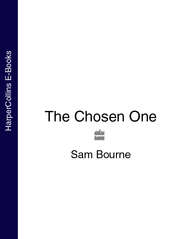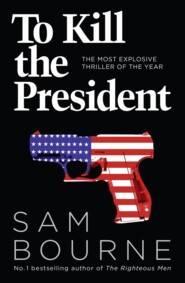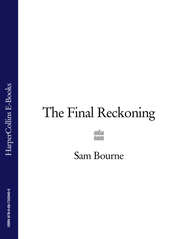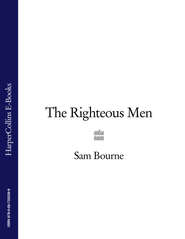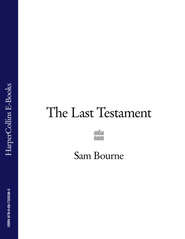По всем вопросам обращайтесь на: info@litportal.ru
(©) 2003-2024.
✖
Pantheon
Настройки чтения
Размер шрифта
Высота строк
Поля
He had a strong urge to turn around that very instant and make the long journey back to Victoria Station. But the thought filled him with cold. The very idea of England without Florence felt barren. Returning to his routine of seminars, papers and long, silent sessions entombed in the dust of the Bodleian … No, he couldn’t do it, not after a week like this.
Perhaps he should chase after her. He could apologize, tell her he had got it all wrong. He could tell her that whatever she had decided, he was sure it was right. Maybe he should follow her to Berlin. It would be worth it, even for just one more night with her, touching her skin, smelling her hair, hearing her laugh.
But that would sound more desperate still. He would be clinging to her, like a limpet. She would soon want to shake him off. And what respect would she have for a man so ready to abandon his principles, decrying Hitler and the ‘fascist circus’ of the Berlin Olympics one minute, only to come scurrying to the Games the next? It was one thing for her to do it; she had her own, mysterious reasons. She had her point to make, ‘in her own way’. He would have no such excuse.
Anyway, she had not asked him. If she had wanted him at her side, she would have asked, and she had done no such thing. It would be humiliating to follow her to Berlin, trotting after her like a devoted little spaniel.
He looked upward, watching the red and yellow of the People’s Olympiad banner come down, replaced by a flag of deepest red, and let himself fill up with the sensations he had felt earlier: the call of liberty, the demand of justice, the imperative that all those who were fit and able fight the good fight, saving the republic from those who would destroy it and much of civilization along with it. The void love had left in his heart would be filled by history.
THREE
Oxford, July 8 1940
James slid his key into the lock noiselessly. He always tried to be quiet on these early mornings, so as not to wake the baby. But there was the smell of human warmth in the hallway, suggesting Florence and Harry were already up. He called out, ‘Good morning!’ There was silence.
He wandered into the kitchen, noting that two of the three drawers were still open. Had they had to rush out for something? Had his son been ill while he was on the river? He called out again. ‘Harry? Daddy’s home.’
Once in the bedroom, his concern rose. Clothes were strewn over the floor, a chair from the bathroom dragged in front of his cupboard, whose door was flung wide open. His scrapbook was on the bed, several pictures shaken loose. Now James ran into his study, only to have his worst fears confirmed. The drawers were pulled from the desk, the floor covered with their contents along with dozens of books. There had been a robbery, just now, while he was out.
And yet the most valuable objects in the house, a pair of solid silver candlesticks, worth several years of his fellow’s salary – a wedding gift from her parents – were still sitting, untouched, on the mantelpiece. If they had been robbed, and if Florence had rushed from here to the police station to report it, a screaming Harry in tow, then the culprits must be the stupidest men in Oxford.
As he went back to the bedroom, a new thought began to form. He opened his wife’s cupboard and, while he could not have said exactly which items were missing, he could see that the shelves were unusually bare. A look under the bed confirmed that the suitcase was gone.
Now his head began to throb. He ran into Harry’s bedroom, looking for one thing. He went straight to the bed, pulled away the pillow and then tore off the blankets. No sign of Snowy, the boy’s toy polar bear. His place was always here, in Harry’s bed. If they went anywhere overnight, whether staying at the Walsinghams’ London home in Chelsea, as they had done a couple of times, or at the country house in Norfolk, Snowy always came with them. Harry couldn’t sleep without him. The fact that the bear was missing, even more than the absent suitcase, could mean only one thing.
Instantly and without conscious thought, James ran back into the hall and out of the front door, down the garden path and onto the wide, tree-lined road that was Norham Gardens. He looked left and then right, then left again: nothing, save for a large, heavy black car pulling away at the Banbury Road end of the street. All else was tranquil at this hour, the larger buildings opposite – once among the grandest houses in Oxford, but which were now often satellite buildings for assorted academic departments – were still locked up and empty, their gravel driveways undisturbed.
With no more reflection than before, he ran in the opposite direction, stopping just before Norham Gardens came to a dead-end at Lady Margaret Hall. The college porter, sweeping outside the front gate, lifted an arm in acknowledgement but James ignored him, instead turning hard right down a narrow pathway. This would lead to the University Parks. Would Florence have taken Harry here so early? Perhaps the boy had had a tantrum, perhaps he had developed that child’s version of cabin fever for which the only remedy was fresh air. But then why had the house been turned upside down and why was the suitcase missing?
James vaulted over the gate – officially this entrance was for members of Lady Margaret Hall only – into the wide, flat stretches normally green but now a dry, sun-scorched brown: ahead and to his right was a strip of turf the colour of a digestive biscuit. This was the Oxford University Cricket Club, still and dormant.
A flicker of movement to his left: a matronly woman with a headscarf, walking her dog. He scoped the horizon one more time, left to right and back again. There seemed to be no one else around. And certainly no sign of Florence and Harry.
He walked the short distance back but now it felt like a long trudge. It was becoming impossible to avoid the conclusion that Florence had not left the house for some early-morning exercise, nor because there had been a break-in, but because she had left him.
Back at the house he felt instantly mocked by the outward serenity of the scene: the creeping white roses around the front door, the low wall containing a small, pretty garden with its trim lawn and single chair. He could picture Florence and Harry sitting there, the boy on his mother’s knee, turning the pages of his illustrated edition of Grimms’ Fairy Tales. With one shove of his right arm, James sent the chair crashing to the ground.
Once inside, he went straight back to his wife’s wardrobe, standing closer this time, so that the scent of her rose from the few remaining clothes. He pulled out a drawer, now empty but for a few forlorn items: an old comb, a broken brooch. Her jewellery box was there. He opened it and saw that all the pieces he had given her – including the bracelet that was a gift to celebrate their reunion – were gone. He picked up the Japanese lacquerware box and, without thinking, hurled it against the far wall. The shattering sound provided a momentary shock of relief.
She had left him. She had left him, just as he had always feared she would. Who was it, he wondered? It could only be a much older man. All those his age or younger were at war. McGregor at the lab, working with her on ‘research’? Or that Fabian smoothie, what was his name? Leonard something.
He started running through all the possibilities, each time inflicting on himself the image of his wife in the arms of another, her mouth on his, her hair touching his shoulders …
Now he began pacing the house. How long had it been going on? How long had she been planning for this moment, never letting on a thing? Smiling at him, chatting away as if there was nothing out of the ordinary, when all the time she was scheming, preparing …
And to take little Harry with her, treating their son as if he were her personal property …
He could feel it returning, the sensation which these past three years had become as familiar to him as an old friend. He could almost hear it, like the first intimation of distant thunder or the tremor of an approaching underground train. It was building inside him, getting stronger with each beat, until it was rushing through his veins, a rage that could not be stopped. He could picture it too, hot and viscous as lava, a physical substance that, once stirred, would swell inside his body, surging forward, searching for escape. The rage controlled him now; it would brook no restraint until it had erupted. He was merely its vessel.
The terrible truth, that he had admitted only once and never to Florence, was that he did not loathe or despise this feeling. Instead, he greeted this molten fury when it came with something close to relief. For weeks on end he had to hold it all in, to speak calmly, to smile at acquaintances, to feign interest in students, to discuss cricket or Herodotus with some fossilized nonagenarian at high table. But when the fury came, it came with elemental force, a force that cared for nothing but his appetites, his fears and his rage. When James was in the grip of this anger, he did not care about the consequences of his actions or what the neighbours would think. He did not think at all. It made him free.
He reached for one of those damnable candlesticks and, satisfied by the weight of it in his hand, threw it squarely at the window looking out on the back garden: it sailed through, smashing the glass but clipping the window-frame on its exit, splitting the white wood. He heard it land hard on the flagstones beyond. To hell with the bloody Walsinghams and their bloody adulterous daughter!
Next he turned to the dresser, containing their best china. He opened the glass-fronted door and removed the largest plate, and hurled it, discus-style, in the same direction as the candlestick. It went askew, smashing on the wall to the right of the window. The noise was too feeble to sate him, so he took another plate and threw that one to the floor. Softened by the rug, it broke in two with a single crack. Reaching for a third, he smashed it on the table before him; it cut his wrist on impact, producing a jagged wound. The sight of the welling blood brought the eruption to a halt and suddenly he felt tired, spent.
And now came the reckoning, the feeling of disgust that followed release. He surveyed his surroundings, strewn with rubble of his own making. So much destruction. Again.
He stumbled towards Harry’s room and slumped onto his son’s infant bed, imagining he could still feel the boy’s warmth. At this moment, Harry was probably walking between Florence and the man who had stolen her from him. They were each holding one of the boy’s hands, calling out ‘one-two-three’ then lifting and swinging him through the air. The man was smiling at Florence who was looking more beautiful than ever. How long before Harry called him Daddy?
As if trying to escape the thought, James headed to his study, now as cavernously empty as the rest of the house, suddenly desperate for a cigarette. The first hit of nicotine flooded through him, swamping his neural circuitry, just as he wanted it to. As he exhaled, a fresh thought occurred to him, one sparked by the ache in his shoulder, now pulsing with increased voltage. Florence had tired of him, and who could blame her?
She had tired of living with an invalid. Not yet thirty, James was already a veteran with a war wound. A cripple. Yes, he could row, though at nothing like his former strength and at such enormous effort. He was still a cripple, rejected three times for military service, despite his repeated appeals and best endeavours at string-pulling in Whitehall. So what did that make him? A cripple who tried hard. A Victorian oddity, on display in a travelling show. Good old James: shoulder smashed to pieces, but still he does make a jolly good effort, I’ll say that for him.
Florence, on the other hand, was twenty-four and in her impeccable prime. Why would such a perfect creature want to be paired with a physically damaged specimen, why would she tolerate it? She needed more than he could give her.
He thought of the first time, not long after it happened, when he had realized this. They were back in England, married for less than a year. He had woken with a terrible thirst and croaked out, ‘Florence! Florence?’
And then he had seen that her side of the bed was empty. He had hauled himself up and staggered to the kitchen. He had been about to go inside when he had stopped short, halted by the sound of sobbing. He had watched her for what seemed like an hour, though it was probably no more than seconds. Her back had been to him, her shoulders rising and falling in rapid, short jerks. She was pregnant and he had decided that she must be in pain, that there must be some kind of complication and that she needed his help. He had stepped forward, drawing level with the doorway, before realizing that she was, in fact, crying for him – for what he had once been and for what he would never be again. He had opened his mouth, his lips forming his wife’s name, but they emitted no sound, just a dry, papery rasp. She did not turn around.
He had returned to their bed without her ever noticing that he had left it. And that was hardly the last time he had seen her cry.
The memory left a bitter taste: he decided he needed a drink. He poured himself a full glass of Scotch, downed it, then poured another. Florence had left him before, he now thought. After their very first week together, she had left him. Or that was how he had understood it at the time.
She had told him she was going to Berlin, to take up the place she had never formally surrendered in the British Olympic team. He had accused her of vanity, of betraying the principles that surely they both shared. He had embarrassed himself, speaking of ‘us’, as if they had sworn solemn vows, when they had known each other for little more than a week. He had sensed in Florence Walsingham a kindred spirit. She was not like Harry, with his ideological tracts and his alphabet soup of political parties. She seemed to see things the way he did: that what was happening around them was not really about politics, but about right and wrong. You didn’t have to carry a party card to know the difference, to know on which side of the line a decent person had to stand. By heading to Berlin, she had announced she was crossing over to the other side.
He was the older of the two of them, and yet he had been so bloody juvenile. So naïve. She had told him to trust her, that she was going to make her point in her own way, but he had not listened.
Instead he and Harry Knox had stayed in Spain, to do what they could to defend the now-endangered republic. They had watched as a flood of French communists who had made the same decision poured into both the Basque country and Catalonia. As those volunteers and others from all over Europe and beyond gradually formed into the International Brigades, he and Harry gladly signed up.
There had been quite a few people in their position, two hundred by one estimate: athletes who had been expecting to take part in the People’s Olympiad but who would soon find themselves learning how to dig a trench or use a rifle. (It was a Czech, tipped for gold in the twenty-five metre rapid-fire pistol event, who had first taught James his safety catch from his trigger.)
Most there were like Harry, serious men driven by political conviction – and that conviction was usually Marxism. Some saw the Spanish republic as a laboratory experiment, a test bed for socialism that had to be protected. But plenty saw it the way James did. He had been adamant that he would not be used as an extra in Hitler’s pageant of the master-race in Berlin, and he was equally clear that Francisco Franco and his fascist allies in the Falange could not be allowed to overturn the will of the Spanish people by toppling a government the people had chosen. It was a clash of democracy versus brute force: pretty straightforward really.
And what James could not deny, though he would not have admitted it out loud or even quietly to himself, was that this epic struggle between good and evil had come along at the right time – just when he needed a cause in which he could lose himself.
So he was happy to join the internationals as they journeyed first to Valencia, where they paraded through the streets, greeted by flags, placards and ragged banners, their slogans chalked in white, and by endlessly-repeated chants. James heard lots of vivas, quickly echoed by the French communists leading the column, who began to shout Vive le Front Populaire! or Vive la Republique! But the most constant refrain was No Pasaran!, the slogan James would see daubed on walls and hear at rallies for most of the next year. As he and Harry walked with others from the International Brigades, diffident and surprised to be feted in such fashion, the townspeople would sometimes join in, walking among them for a block or two, before joining the crowds stretched along the pavements. They were being hailed as heroes, like the warriors of ancient myth. And they had not yet fired a shot. When they came to leave Valencia, and their train was delayed for a long while before moving off, the local women compensated them by offering free kisses to anyone who stuck his head out of the window.
James remembered the mood of almost reckless idealism that had gripped him and his new comrades in that late summer of 1936: young men, from all over the world, united in a cause that was just and noble. And in his mind it was intertwined inseparably with the love that he carried for Florence, the spark lit during that brief, exhilarating week in Barcelona and which burned in the months afterwards. It burned even as that train took him to Albacete, the nowhere city in La Mancha where the International Brigades would have their headquarters and training camp. Though that term flattered it: there was no formal training, just a period set aside early each morning for exercise. Perhaps in a nod to the anarchists then so influential in the republic, each unit was to devise its own exercise programme with no order from any commanding officer telling them what to do. James and his group had prepared for war by playing leapfrog.
Now slumped in his chair in Norham Gardens, the whisky doing its work, he gazed up at the mantelpiece, at the picture frame that contained no photograph but only a small, singed newspaper clipping. He had preserved it because that little piece of paper had brought Florence back to him.
He had been on guard duty at the Albacete camp, his group having been saddled with the two am shift. The war was in its eighth week, it was late September and the nights were getting cold. A Yugoslavian comrade had passed him a shred of newspaper, urging James to use it to relight a dwindling fire. He had just put a match to it when he noticed it was in English; indeed it was a page from The Times. Hungry for news, he had blown out the flame so that he could scan the items: a ship lost in the Atlantic, troubles for Mr Baldwin’s government. Then a name leapt out at him.
Miss Walsingham’s withdrawal from the Games disappointed British organizers, who had believed she was a racing certainty for a gold medal, having secured her place in the final with the fastest qualifying time. But the champion swimmer said that she had never intended to compete in the last stage of the Olympic swimming competition. ‘I wanted to show Herr Hitler that his nasty little Nazis are not the best in the world, whatever they might say. Whoever comes first on Sunday will be second best – and they will know it.’
James reached for it now, reading it again, nearly four years later, as he let a third glass of whisky warm his throat. For months that clipping had stayed in his wallet, second best to having a photograph of her. He had kept it with him until they had made contact again, kept it with him, in fact, until they had set up this house as their marital home (thanks to some help from Papa Walsingham).
Once in its frame, it became quite a conversation piece: Florence used to like telling the story. But for James it was more than just a memento of their romance. It was also a reminder to him of his own naïveté. He kept it lest he forget that sometimes – often – she was right and he was wrong.






